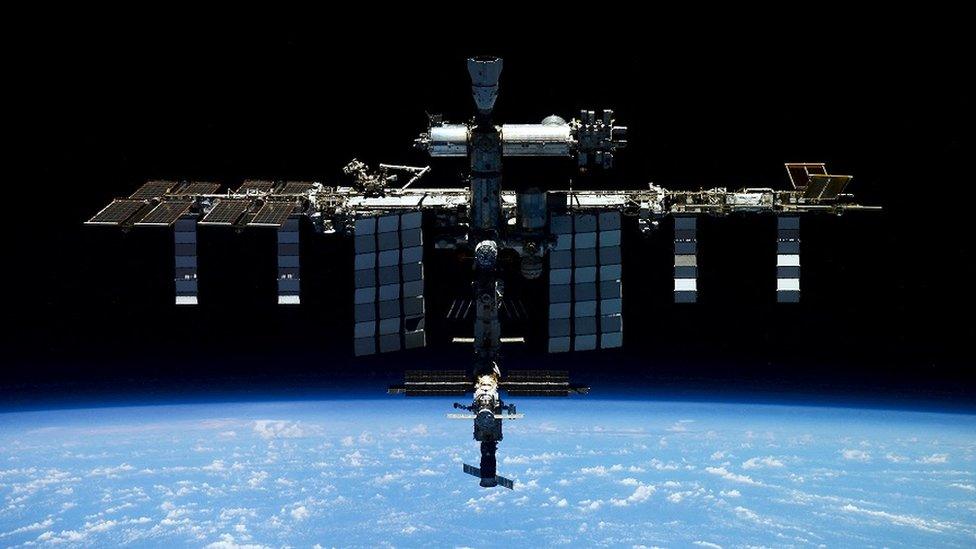World's first 3D-printed rocket launches but fails to reach orbit
- Published
- comments
Watch: 3D-printed rocket lifts off but fails to reach orbit
Relativity Space has launched what they describe as the world's first 3D printed rocket.
85% of the 33 metre tall rocket - called Terran 1 - was created using the world's largest 3D printer.
It lifted off for the first time in Florida on 22 March but failed to get high enough to be able to circle the earth, which is called orbiting.
It's still a massive milestone for the technology though because it proved this method of construction was durable enough to survive blast off.
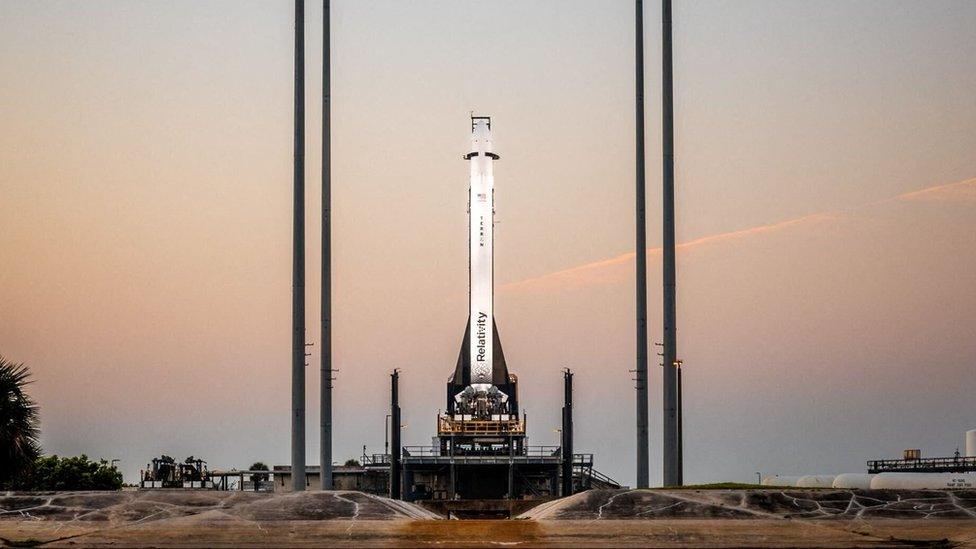
Its lower segment, or first stage, burned for just over two-and-a-half minutes.
The second stage should then have taken over to complete the journey to orbit but, after a few flickers, it died.
The upper part of the rocket would have come down in the Atlantic Ocean.
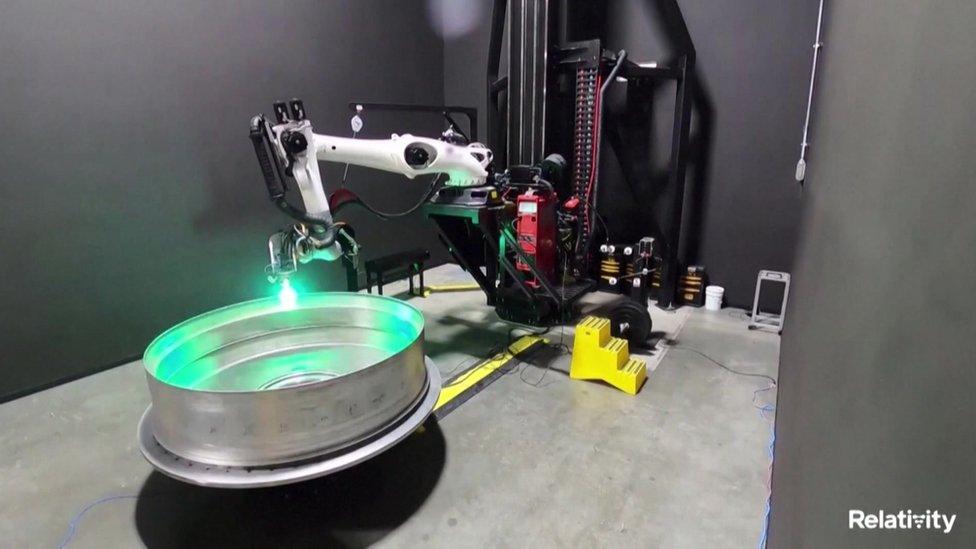
This is what the 3D printing process looks like
Terran 1 is a prototype for a much larger rocket the company would like to create called Terran R which will be used for satellite launches in the future.
The company said its eventual goal was to have more than 95% of the rocket 3D printed.
3D printing is when a physical object is created from a computer model usually printing lots of layers of a material on top of each other.
The technique has never been used to make something as big as this and Relativity Space had to make some really big printers to be able to do it.
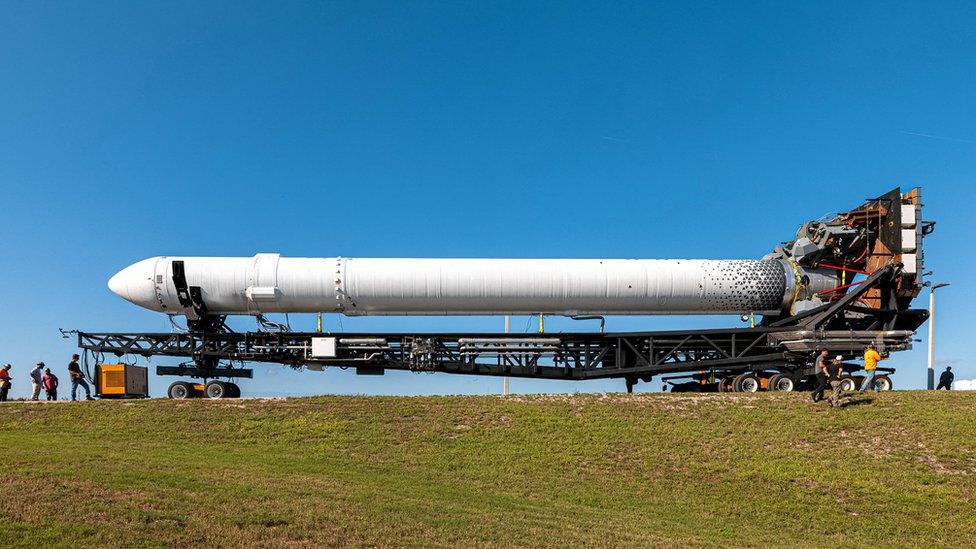
Relativity said its 3D-printed rocket can be built from raw materials in just 60 days!
Although the full mission had a few hiccups, it's quite common for a first flight like this to experience some problems.
Scientists will be now be looking back at the data produced during the launch to see where it went wrong and fix it for future launches.
Relativity Space says the launch is still a big achievement because it shows the 3D printed model can withstand blast off.
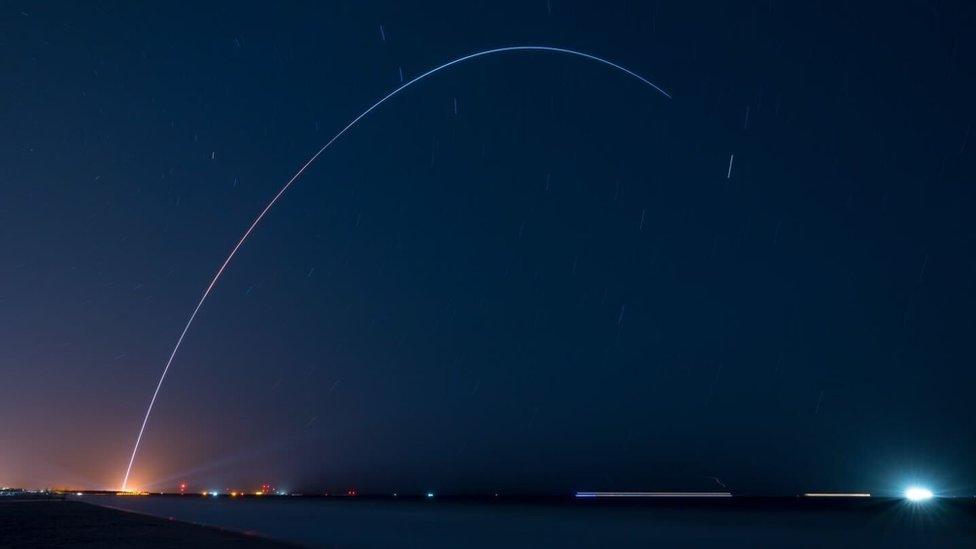
The methane fuel powering Terran-1 burned with a blue tinge
Terran 1 was also fuelled by liquid methane rather than the usual choice of something like kerosene.
It's a fuel expected to be used by more rockets in the future because it burns more cleanly than other propellants and therefore it's better for the planet.
Relativity Space said:
"Today is a huge win, with many historic firsts. We also progressed through main-engine cut-off and stage separation. We will assess flight data and provide public updates over the coming days."
- Published23 January 2023

- Published26 March 2023

- Published20 March 2023
